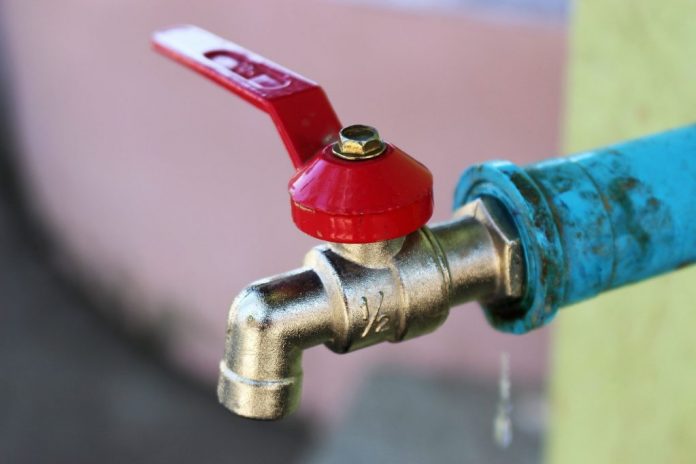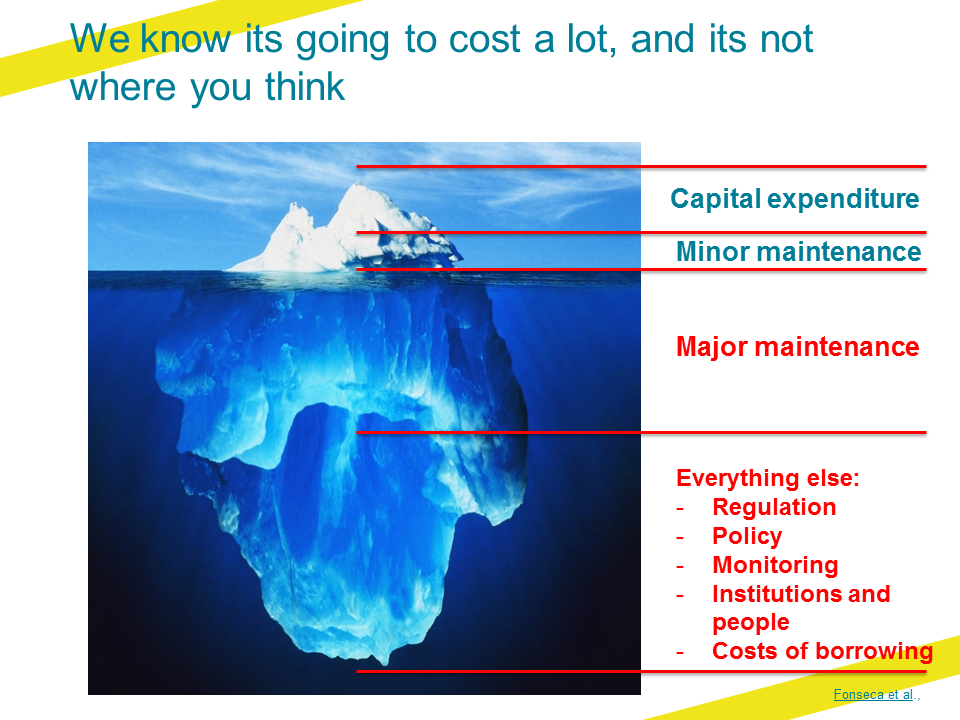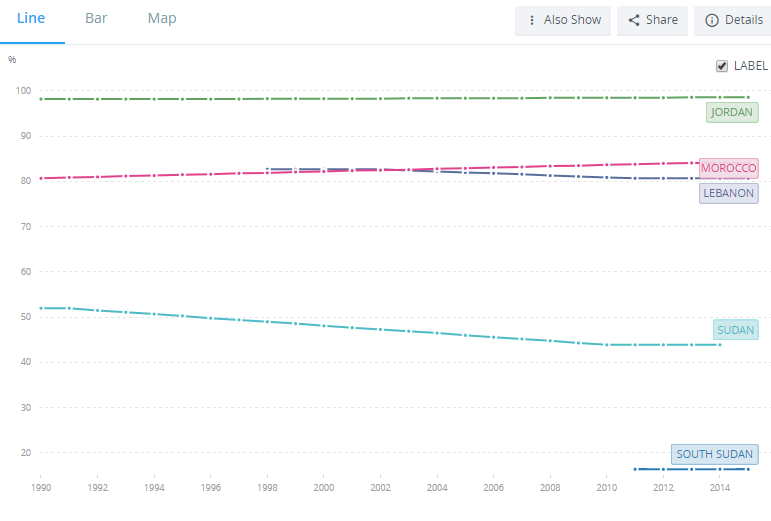Economies run on water. According to a study published by UNESCO’s World Water Assessment Programme, “78% of the jobs constituting the global workforce are water-dependent”, yet current human resources and educational systems are grossly insufficient to deliver the SDGs water agenda. For one thing, the water sector has traditionally been dominated by engineers, and so, our water challenges have largely been addressed through better infrastructure. No doubt job opportunities in the water sector have been shaped around such projects and all its hardware. Careers leading to a position in regulatory institutions or public administrations, seem less ‘attractive’ for many young water professionals trying to set a foot in the world of water.
These are actually the roles that aim at providing the enabling environment and necessary support to the engineering – based water projects. With little or no focus on training and capacity building for professionals that can carry such tasks, we risk jeopardizing the presumed benefits of any investment in water. These skills and capacities conform what’s needed to address most of the “hidden part of the Iceberg”, as represented by Catarina Fonseca (Director Watershed: empowering citizens – IRC).
Figure 2 Fonseca et al (2017). ‘Why are we so far from reaching the SDG6?, What we know and what we don’t know’ [PowerPoint presentation].
According to Fonseca, most of us think that capital and minor expenditure (the top of the iceberg) are the main burden for any water project to succeed, but understanding the life cycle of water projects – from planning until their implementation and operation –, it appears that major maintenance as well as factoring in the human element represented by regulation, policy, institutions and people could make or break our investments in the water sector, and future water security for many communities in both developing and developed countries for that matter.
Water governance: an old-new concept
To explain “what is water governance” to a group of fresh graduate engineers can be a daunting task, as – quoting Mr. Yang Villa, Metro Pacific Water, The Philippines- many are taught to fall in love with pure engineering solutions , instead of the people’s problems those solutions are intended to address.
“Water governance refers to the political, social, economic and administrative systems in place that influence water’s use and management. Essentially, who gets what water, when and how, and who has the right to water and related services, and their benefits.” Watergovernance.org
Talking about governance, policy and regulations in the water sector demands understanding of the problems people face from their point of view: who the stakeholders are, what their interests are, and how to bring them together in a collaborative way.
For example, Jordan is one of the driest countries in the world, and its government has tried almost all possible technical solutions to reduce the water demand – supply gap, such as reducing Non Revenue Water, increasing wastewater treatment and reuse, or installing desalination projects. None of which has been enough to solve the problem. As Ms.Hala Murad from Debin Association put it, “solving our water problems starts from sound governance and management of water resources in Jordan through an integrated approach where everyone in the society understands that he/she has a responsibility to be aware of.” Ms Murad has also referred to the ‘enabling environment’ with regards to facilitating talks about governance, policies and regulations. “Jordan’s overall political environment has seen certain flexibility, moving towards decentralization in different sectors, which was encouraging for civil society and youth associations to think about an active role to play. Again Debin Association thought about playing an active role in raising the awareness of their community – particularly youth, women and other civil society groups- about the need to understand water governance and sound regulations through a science – communication strategy to make complex information easier to understand and bring all community members on board along with other stakeholders.”
From Prioritisation to integration
As discussed, prioritising the “hardware” of the water and sanitation sector over policy, regulation, institutions and people affects our water future and might end up in a chronic inefficiency that brings the sector into stagnation Figure 3.
Figure 3 Improved sanitation facilities, urban (% of urban population with access) 1990-2015. The World Bank Data
The solution for our prioritisation problem might not be shifting our priorities, but having a more integrated approach between different scales and at all levels where water is important.
In a world where water is affecting everything starting from your morning cup of tea (or coffee!) to economics, sports, arts, history, politics, conflicts, communication, rivalry, partnership and space research, there is an urgent need to collaborate and bring all stakeholders together. Young water professionals and their visions of a water-wise world are at the heart of this collaboration.
Networking and Communication
Proactive steps and active engagement is a key step towards better water governance through a Water – Wise approach. “As the water-food-energy nexus blurs traditional lines of resource allocation, collaborative thinking becomes a matter of survival. [….] Water professionals must employ social innovations to hack into society’s often faulty mindset and memory in order to instill collective resilience,” said Yang Villa during the last IWA Water and Development Congress & Exhibition in Buenos Aires, Argentina.
The need for networking and sharing experiences is vital for success and will open the door for young water professionals to get more involved in the water sector; innovation and creativity will be an important outcome that will enrich the sector and help tackle new challenges. “Since nature produces the water humans need, all water users must go beyond the mindset of “let’s fight for our portion of water”, to discuss how we can more sustainably invest in the source of our service supply. There is no one to champion this call to action than a generation that has risen up against the status quo,” said Rianna Gonzales, keynote speaker at the 4th International Water Regulators Forum last year addressing a senior crowd to flag the essential role of policies and regulations for more resilient and efficient water and sanitation systems.










